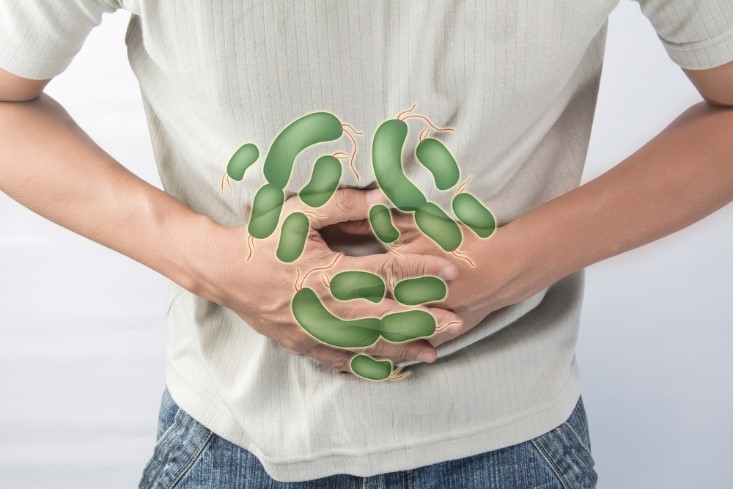Stomach flu and food poisoning are both unpleasant gastrointestinal ailments that can leave you feeling miserable for days. While they may share some similarities in terms of symptoms, they are distinct conditions caused by different pathogens. In this article, we’ll take a closer look at the key differences between stomach flu and food poisoning.
Stomach Flu: A Viral Infection
Stomach flu, also known as viral gastroenteritis, is a highly contagious infection caused by a range of viruses. The most common culprits include norovirus, rotavirus, and adenovirus. Stomach flu is typically spread through contact with infected people or contaminated surfaces, as well as by consuming contaminated food or water.
The hallmark symptoms of stomach flu include nausea, vomiting, diarrhea, stomach cramps, and fever. These symptoms typically emerge within one to three days after exposure to the virus and can last for up to a week. While there is no specific treatment for stomach flu, staying hydrated and getting plenty of rest can help ease symptoms.
Food Poisoning: A Bacterial Infection
Food poisoning, on the other hand, is caused by eating contaminated food that contains harmful bacteria, viruses, or parasites. The most common bacterial culprits include Salmonella, E. coli, and Campylobacter. Food poisoning can also result from consuming toxic substances such as poisonous mushrooms or seafood contaminated with toxins like ciguatera.
The symptoms of food poisoning can vary depending on the type of contaminant but typically include nausea, vomiting, diarrhea, stomach cramps, and fever. These symptoms can emerge within a few hours to several days after consuming contaminated food and can last for a few days to a week. Treatment for food poisoning typically involves staying hydrated and allowing the body to expel the toxins through diarrhea and vomiting.
Key Differences Between Stomach Flu and Food Poisoning
While stomach flu and food poisoning share some common symptoms, there are several key differences between the two conditions. Here are some of the most important distinctions:
Causes: Stomach flu is caused by viral infections, while food poisoning is caused by eating contaminated food.
Transmission: Stomach flu is typically spread through contact with infected people or contaminated surfaces, as well as by consuming contaminated food or water. Food poisoning, on the other hand, is spread exclusively through the consumption of contaminated food or drink.
Incubation Period: The incubation period for stomach flu is typically one to three days, while for food poisoning, it can range from a few hours to several days.
Duration: Stomach flu symptoms typically last for up to a week, while food poisoning symptoms can last for a few days to a week.

Treatment:
The treatment for stomach flu and food poisoning mainly involves managing the symptoms and staying hydrated. Here are some ways to treat both conditions:
Stomach Flu:
- Drink plenty of fluids such as water, clear broths, or oral rehydration solutions.
- Eat small amounts of mild foods such as rice, bananas, or toast.
- Avoid solid foods, dairy products, caffeine, and alcohol.
- Take over-the-counter medications such as acetaminophen or ibuprofen to reduce fever and ease body aches.
- Rest as much as possible.
Food Poisoning:
- Drink plenty of fluids such as water, clear broths, or oral rehydration solutions.
- Avoid solid foods, dairy products, caffeine, and alcohol.
- Eat small amounts of bland foods such as crackers, bread, or boiled potatoes.
- If the symptoms are severe, it may be necessary to go to the hospital for intravenous fluids and medications.
- In some cases, antibiotics may be prescribed to treat bacterial infections.
- It is important to note that in some cases, the symptoms of both stomach flu and food poisoning can be severe and require medical attention. If you experience severe symptoms such as bloody stools, high fever, or dehydration, seek medical attention immediately.
Conclusion
In conclusion, while stomach flu and food poisoning share some similarities in terms of symptoms, they are distinct conditions caused by different pathogens. Understanding the key differences between the two can help you identify the cause of your symptoms and seek appropriate treatment. If you suspect that you have either condition, it’s important to stay hydrated and seek medical attention if your symptoms are severe or persist for an extended period of time.

